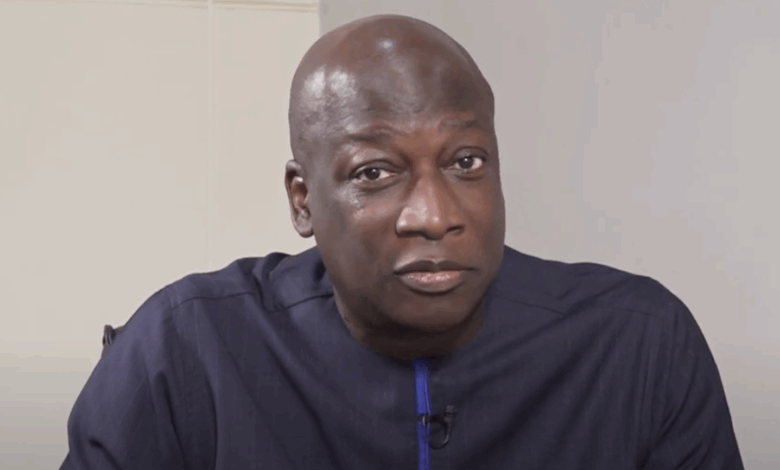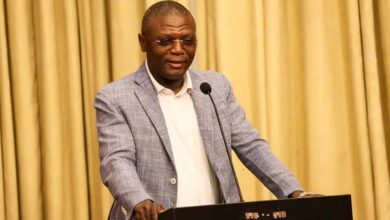Towards a quality revolution in Ghanaian Life


A speech delivered at: THE WORLD QUALITY WEEK 2025 CELEBRATIONS
Jointly organised by: Global Quality Assurance Association (GQAA) & the Ghana Tertiary Education Commission (GTEC)
“Not everything that is faced can be changed, but nothing can be changed until it is faced.” – James Baldwin (writing in his 1962 essay, “As Much Truth As Once Can Bear,” published in “The New York Times Book Review.”)
Chair, distinguished invited guests, ladies, and gentlemen,
Thanks for the invitation.
I readily accepted to speak at this event. Your theme, “Thinking Differently About Quality,” suggests seriousness.
In Ghana, we seem to talk, talk, and then talk again. Yet, like the Laws of the Medes and Persians, the many issues we constantly discuss, changeth not! We expect that you and this event will be different. The search for more quality lives, or for more quality in all we do, is a civilisational quest for all serious societies. Let us dare to assume that we are either serious or hope to be serious too – in a near and definite future.
Whatever the case, what you – as advocates of quality thinking and quality mindsets, agree to do, as a result of the reflections and introspection you detonate with your “World Quality Week” celebrations this year, should translate into actions that make our society better. Or else, you will become part of the problem, not part of the solution.
Introductory remarks
The search for quality is or ought to be a central responsibility and concern of all in society.
Scientific thinking, respect for facts, integrity in analysis; all these lead to the critical awareness that societies need to advance sustainably. It is therefore useful that you have set aside meaningful time to think about quality. Ultimately though, if I may say so, it is only action and execution that implement high quality thinking, which will change things. Thought without action is sterile, action without thought leads to chaos. So, think we must, but then we must act.
You are unlikely to know that my own professional career started, as a young chemical engineer, in a Quality Assurance department. I remain indebted to Mrs. Pamela Aba Turkson and to Joseph Tusah, my two bosses at the time – and to the large teams of technicians that worked for them, for the patience they showed in training me. That training gave me a grounding in the subject which was to grow into a life-long passion.
There are many ways in which we can approach the subject of quality management. There is a danger of intolerable repetition, if all speakers at your events this year, stick to the mainstream industrial templates many Quality Assurance models follow. My approach will therefore try to broaden the horizon from which we discuss this subject. Quality is a people-based whole-society endeavour, it must be viewed holistically.
For today, may we surrender wholly to the thoughts of the respected Japanese thinker of the Quality movements of yesteryears, Genichi Taguchi, when he observed that: “The essence of quality is the minimization of loss to society.”1
Taguchi was speaking in Japanese, some elements of his full meaning get lost in the translation to English. Fully excavated and viewed holistically, he was signalling much more than the cryptic statement suggests on the first read in English. In Taguchi’s crisp formulation – and note he was speaking more than forty years ago, he captured the spirit and intent of what is today known as “Economics of Mutuality,” “Sustainability,” “Multi-stakeholder approaches,” and so on. This matters very much to us in Ghana. Sustainability is the practice of meeting present needs without compromising the ability of future generations to meet their own, by balancing environmental health, economic viability, and social equity.
Since the beginning of time, for as long as human societies have been on this earth, those who think and act responsibly have always pursued one central concern and challenge – this has been true in and for all cultures. To the best of our existing knowledge of science, in the broadest meaning of the word “science,” responsible people and responsible societies, have always wanted to utilise the bounteous gifts of nature, which of course include our own brains, to meet our needs as human beings – without destroying this beautiful planet in the process. High civilisations seek true, society-wide, people-based development in modes that see humans and nature in harmonious compatibility.
That is – or should be – the central concern of the quality movement. How, through the values and lived culture that we all champion and uphold, we can usher the large majority of our compatriots who today are trapped in poverty and misery, into sustainable dignity. That is the primary goal of quality management in society. We must view it this broadly and comprehensively if quality is to be a principal consideration of all our decision makers.
Quality management is not playing its full role in society if it gets stuck exclusively in narrow considerations about products and production. That parochial approach to quality management leads to what Theodore Levitt, in his outstanding article published in 1960, Marketing Myopia2, described as “product provincialism.” Product provincialism is a dead end. For, and perhaps this is why we must all really think differently, it is futile to chase quality production for non-quality societies. Quality is an eternal and organic aspiration for serious societies.
Quality cultures upgrade society
Quality, at its most useful, is about securing the long-term health of society. How do we, using all the resources of our intellect and energies, liberate the productive forces in order to improve living conditions in our country – for the majority of our compatriots? This, it seems to me, is the historical task facing the living generation of Africans and Ghanaians.
Whatever attitudes, systems, mindsets, laws and regulations, educational models, media, governance approaches, behaviours, and consequently, culture that drive the emergence of a wholesome civilisation – sustainably so and for the long-term, that is what Quality management is about. It is through ensuring, in all that it does, a society values, cherishes and upholds quality, that sustainable development is achieved.
This is why it should be difficult to see how societies can say they are championing quality when their physical environments are dirty, unplanned, haphazard and disorganised. We cannot ignore the palpable and pervasive conditions of anomie that make life a tortuous existence for so many of our fellow citizens, while we retreat into comfortable but esoteric and abstract realms to discuss quality. Thinking differently about quality will necessarily involve asking, and hopefully finding answers, to some difficult questions about our collective existence as a society.
High quality cultures in society manifest as, in addition to some other things: clean neighbourhoods, green environments with thriving flora and fauna, and clean water bodies. The smell of the air in such societies is rejuvenating and energising.
Amilcar Cabral3 was more than right, in his deservedly and oft repeated poignant remark: “Always bear in mind that the people are not fighting for ideas, for the things in anyone’s head. They are fighting to win material benefits, to live better and in peace, to see their lives go forward, to guarantee the future of their children …”
We must never, even in the middle of a tortuous battle for progress and advancement, forget Cabral’s instructive injunction when we discuss quality development in society. It is not enough to fixate on progress only stated on spreadsheets – as bland financial metrics – when the very quality of our lives is deteriorating. This requires what one of my friend’s aptly calls a Mindset Revolution.
In which aspect of our lives, of our collective existence as Ghanaians, can we sincerely say that the achievements made so far, are such that we can show them off as examples of world-class quality anywhere on the globe? Not even in sanitation, health care, education or food self-sufficiency, can we do this. We are plagued by mediocrity, regrettably even in basic things like, land management (which is today in dangerous chaos in parts of our country). On law and order, the entire system for the delivery of administrative justice in Ghana is stretched to breaking point at this stage. Consequently, people, often the rich and powerful, get away with shocking crimes – in this governance system I call a Santa Claus Democracy.
The Santa Claus democracy is systemic dysfunction. As quality assurance practitioners know all too well, where there is systemic dysfunction, we can only get out of the rut by improving the system holistically – not through episodic focus on some selected symptoms. This is a fundamental truth in all the major schools of quality management that have emerged.
It should be no surprise then, that, in 1978, when Deng Xiaoping and his team decided China needed to step up significantly in order to improve the quality of life for all, they pursued a holistic and well-coordinated programme on multiple tracks. They called this “The 4 Modernisations,” calling out priority areas of focus in granular terms, as:
- AGRICULTURE (Improve productivity through mechanization, better farming techniques, and rural reforms)
- INDUSTRY (Modernize factories, increase efficiency, and introduce market-oriented practices)
- NATIONAL DEFENSE (Upgrade military technology and capabilities to ensure national security)
- SCIENCE and TECHNOLOGY (Invest in research, education, and innovation to support all other sectors).
Through determined leadership, more than a billion Chinese were mobilised behind this plan. They together executed, in my view, the greatest economic transformation that has ever been recorded in human history, one that lifted hundreds of millions out of poverty.
One can point at Lee Kwan Yew’s insistence in Singapore that the state had to intervene in very personal matters – including personal hygiene, as another such example. People who are serious and determined work hard – holistically, comprehensively, creatively and in a determined manner. Their focus for transformation is always long-term.
To raise quality standards and build a truly sustainable high-quality culture throughout a society takes hard work and determination. But it also takes consensus on what constitutes a high-quality society. What do we agree on in Ghana, when our major political parties seem unable to agree on anything – other than that which benefits their principal actors as individuals? And these days also on demonstrating bipartisan solidarity when it comes to calling on bereaved VIPs to express condolences at funeral ceremonies? Whether those funerals be the one day, one week, one month, one year or one decade ceremony! Where is our jointly owned living, organic, long-term development plan – one which can survive multiple electoral cycles?
So how, in such a fractious environment of political incivility, can we ever manage to progress sustained quality improvement efforts that yield positive society-wide impacts?
We in Africa and Ghana must define for ourselves what we mean by QUALITY. We must certainly learn from all experiences and knowledge that we can find anywhere in the world, for we are a part of the globe, and all global knowledge must be ours too. But it is only we who must study our historical evolution, concrete conditions, and circumstances, to produce the best solutions suited for our societies. The Akan proverb says it all: Obi ntumi nto Anansesɛm nkyerɛ Ntikuma
Whatever we decide to do, we must also wage war on mediocrity. The knowledge of excellence and a true motivation to attain it, are what, when all is said and done, quality is – or should be about. We must free the search for quality in Ghana from parochial provinces of product experience and customer service, to think differently about quality. That is the path to greatness. Wherever quality thinking has made a lasting and sustainable difference to a society, it has taken on the status of a concrete civilisational ambition to attain and achieve a higher and fairer culture for all. This is why so many people speak about a Quality Revolution.
Quality must disrupt cultures to improve society
Ambitions for more quality in society spur holistic innovation – by definition, thinking and acting differently to improve life. We must open the windows of the static mimicry of past rituals we sometimes call culture and let in fresh air from science. Science is used here in its broadest and most expansive meaning. Organic cultures breathe; they adapt from learning acquired through lived experience.
Knowledge is the primary productive force, in any serious society. It must impact culture. Culture is behaviour at scale; it cannot be static. Culture is not just simplistically mimicking how our forebears lived, as acts of nostalgia. Culture must embrace new knowledge and adapt; it is not stuck in our genetics as a people. We must retain all beneficial aspects of the cultures of our ancestors – but that which we now have the tools to improve, we must.
The systematically rendered and distilled knowledge from our culture that enriches our study of herbal science, good nutrition, architecture, all the humanities, and our very essence as human societies must be studied and cherished. But we must jettison the unnecessary, if we are to grow.
My grandmother’s home in the village once had kerosene lanterns, out of need – not any fidelity to a particular culture. When electricity came her way, she embraced it and moved on. We are then not practicing African culture if we get stuck with lanterns and reject new knowledge today, simply because once upon a time our ancestors did not have electricity. Everyone else in the world hails from historical antecedents that once did not have electricity too. There is nothing exclusively African about underdevelopment, we must resist the urge to romanticise poverty by calling it Indigenous culture.
Our culture can be improved, but we must decide what we want to improve. It is in this way that we have, as an example, embraced the use of mobile phones. We must make culture compatible with all that improves society, by our own definitions. And that is how quality is championed.
In 2025, I repeat my obsessive call to all chiefs in the country: there is no reason – for example – we must still have human borne palanquins. If you insist on being hoisted in the air for whatever reasons of your cosmology, it is unlikely that the gods will reject motorised improvements. Please do this (motorisation of palanquins), as part of the search for quality.
Let us not be under any illusions that championing a quality culture and the reforms required to sustain them in society will be easy. But, if we are permitted to ask, what is good in this world that comes easily? Ousmane Dembele, the charismatic and very deserved winner of football’s 2025 Ballon d’Or, is a source of inspiration in this regard when he says: “I’ve had difficult moments, but I never gave up. I kept working, kept believing and now I’m stronger. Every training session is a chance to improve to be sharper, to be stronger”
We must show similar obsession to improve if we are serious, but obsession alone will not be enough. We must be willing to change the way we do many things currently, and that will require strong, determined and creative leadership. And organisation – only the organised will prevail. For, culture change to achieve higher quality outcomes in society requires seriousness in governance – achieved through systemic overhauls AND IMPLEMENTATION of laws and regulations and good values. This, I say again, requires strong leadership that can drive deep systemic reforms at all levels in society.
A quality society must be underpinned by competent logistics – there are no shortcuts. We must improve, to use that example, the numbers, coverage, and quality of our toilet system, if we really want to eliminate open defecation sustainably. We must put in place a system to collect, dispose and reuse or recycle garbage, if our society is not to be buried under litter everywhere. We must implement building codes, if we are to move away from the perennial flooding problems that face our capital city. The throbbing list of underperformances since Independence is endless.
To solve this, we must systematically up our investment in Research and Development. No society has ever developed only from the wild remonstrations of what we in Ghana call “social commentators,” screaming at each other in our media every day, many times about subjects they hardly understand.
None of these needed reforms can be done without improving the quality and quantity of our fund flows. There is no time today to look at why the neoliberal approaches of the past have left us mired in so much poverty that we cannot even provide decent quality in basic services. Our public hospitals and education facilities stand as monuments of neglect, and, sometimes, even abject abandonment. Our public procurement system is perceived by many to be an artery for loot by high-ups, rather than a means of securing value addition and high-quality outcomes for society. The state itself, if we may dare to say – party come, party go – is creaking from inadequate quality approaches to decision making and talent management, in too many aspects. So, in despair and desperation, we watch the state abdicate its core responsibilities, while helplessly pronouncing the private sector as a Messiah – the famed engine of growth pronounced in the neoliberal heaven. A pronouncement no man dare put asunder.
It can be deeply despairing to look at the cold facts of our national situation. But what matters more is that we begin the regenerative journey to save our society from anomie conditions. That will require serious thinking, hard work, and creativity – from a united society. Not just idle prayers and a hope in miracles that have never led anywhere and will never lead anywhere.
In imagining a new future, one which we can proudly say represents quality, it is possible that Ayi Kwei Armah’s words in his novel, The Healers4, can offer us some much needed illumination. “The present is where we get lost – if we forget our past and have no vision of the future.”
He is right. Time will not permit me to expand as fully and comprehensively as I would have wanted on this profound statement. It is possible that some of you are pleased that time is constraining me in that way – we shall laugh over that and move on.
Open defecation, Galamsey and Galamsey Professors
Of the many things that I could have chosen to speak about as focal points, issues that I hope our media, education system, religious bodies, entertainment system, professional groupings, political parties, chiefs, and above all citizens – especially the workers and peasants, who are in the majority, will champion with much greater energy, I chose only two.
Develop a five year plan, so that by 2030 – no later than that, under determined leadership, we would have rid our society of the two evils of Galamsey (illegal mining) and open defecation. As well as all endemic and systemic examples of poor sanitation from our society. END GALAMSEY. END OPEN DEFECATION.
It is impossible for me to understand how any country can tolerate the wanton neglect and existential ecological destruction that Galamsey represents. We have systematically destroyed our water bodies, our forests, indeed the very basis of our societies! On the toxic and explosive mix of greed and fatal human indifference that drives Galamsey, involvement by society’s big shots – and as we can see lately, there are many of such, things begin to resemble what Hannah Arendt described in her, The Origins of Totalitarianism5: “…the worst have lost their fear and the best have lost their hope.”
There is not much more to gain by belabouring the point about what should be done. It was said sagaciously by our forebears that, “Gold should only be sold to the one who knows the value of it.” When in opposition, our politicians are full of solutions and promising articulation about what to do about Galamsey. This is true for both the NDC and NPP – so in office, we-the-people must hold them accountable to deliver their own promises. There are no acceptable excuses for inaction and dithering, that will not be a high-quality mindset. This is about all I will say on this matter today.
Since this is a session partly organised by the Ghana Tertiary Education Commission (GTEC); there is another matter we cannot escape. A scholastic credentialling Galamsey, has plagued our country, with attendant dangers to all academic excellence. In our kind of socially networked society, it cannot be easy to ask people of influence and power to stop using even unearned titles. We have an “incestuous” elite culture that means, in matters of all Galamsey, even this scholastic credentialling variant – it is only those who dig the ground, the petty thieves that get punished; not those who rig the system, the big men. So, by going on this thankless but necessary mission, GTEC has, so to speak, touched the backside of the tiger. Several principalities and powers of our societal construct are likely to be very unhappy with you, and you can expect to be scrutinised to the hilt. This is a good thing, a sign of some civic awakening. If GTEC emerges without blemish from the scrutiny of its top officials, perhaps even of their ancestors and ancestors’ ancestors, it may serve as the platinum standard example of ethics and quality, to all other regulators. Time will tell.
The outspoken and sometimes admittedly controversial Mahathir Bin Mohamad, former prime minister of Malaysia, wrote some soul-searching words in his now fifty-five-year-old book, The Malay Dilemma.6 May GTEC exemplify what Mahathir advocated here. “A newly independent country needs, above all, superior skill at the helm of Government. Decisions have to be made every day, and these decisions affect the country and the people. The Ministers and the Cabinet are vested with this decision-making authority. It is obvious that only the most capable and experienced should be made Ministers and be in the Cabinet.”
It is an incontrovertible and non-negotiable part of all excellent quality management systems to ensure that standards, definitions and credentials – in any system of earned honour – are held sacrosanct. It will be useful to establish clarity on this matter, while making a little room for the possibility that some people were genuinely misled into thinking they had earned degrees from accredited universities. Institutional due process and fairness must be the only guides, not political expediency, and the absence of professional courage in delivering your mandate.
While compassion must be shown for some, by society, we must make no room for ambiguity. Unearned titles should not be used – what is the difficulty in sticking to this? It is worrying that such non-compliance even seeped into parliamentary vetting processes. As a professional myself, it is important to say with such authority and conviction as I can muster, that we must all champion this agenda of cleaning the credentials stables. The first Galamsey is bad enough, the second must not be caused by us professionals – wittingly or unwittingly.
One expects that in the age of AI, ready reckoners will be made easily available, so that people pursuing academic exploits in institutions in Antarctica, Afghanistan, Nicaragua, Somalia, or wherever else, can easily cross-check verification claims by the institutions. The last thing this society needs on top of all its other woes, is a plethora of counterfeit professors. The professoriate is the very apex of academic pyramids, attained by hard working scholars through years, sometimes decades, of tremendous scholastic exertion. That system of merit must be protected, not diluted, and made a thoroughfare for pretenders and charlatans. This too is a concern of society and quality management. We must rebuild the earned dignity of true scholarship.
Final remarks
We must now bring this speech to an end as the allocated time is up. It was that Chilean martyr of democracy, Salvadore Allende, who once said, it turns out prophetically: “Only an organized and conscious people can bring about a different kind of society.”7 Allende was right then, and he is right now. Allende would add powerfully in 1939, in a rousing call to the Chilean people that should resonate with Ghanaians today: “the right to develop our culture at all levels, regardless of social class. A revitalized, healthy, and educated people, this must be the slogan for all Chileans”7
Only an organized and conscious people can create a high quality Ghana. Quality requires holistic and systemic/structural interventions to achieve, plus, it must always seek solutions that can be sustained for the long term. We have touched on the need for the upgrade of society-wide cultures, if we are to make any serious dent on mediocrity and misery – in our lifetimes.
It is suggested that we begin by aiming to end Galamsey and Open Defecation. Doing this alone, will require a degree of transformation that may surprise us all. But we will be a much better society for it, and so coming back to an adaptation of Baldwin8, “… we must face our quality crisis, for nothing can be changed until it is faced”.
Sincere congratulations on the occasion of the Quality Week for 2025. Long may we think differently about how to get more quality in our lives. Let the Quality Revolution begin — in our institutions, our homes, our streets, and our hearts. Thank you.
REFERENCES
1. Taguchi, G. Introduction to Quality Engineering: Designing Quality into Products and Processes. Asian Productivity Organization, 1986.
2. Levitt, T. Marketing Myopia. Harvard Business Review, vol. 38, no. 4, 1960, pp 45 – 56.
3. Cabral, A. Revolution in Guinea: Selected Texts. New York: Monthly Review Press, 1974.
4. Armah, A. The Healers. Oxford: Heinemann, 1979.
5. Arendt, H. The Origins of Totalitarianism. Schocken Books, 1951.
6. Mohamad, M. The Malay Dilemma. Federal Publications, 1970.
7. Allende, S. Salvador Allende Reader: Chile’s Voice of Democracy. Edited by James D. Cockcroft, Ocean Press 2000
8. Baldwin, J. As Much Truth As One Can Bear. The New York Times Book Review, 14 Jan. 1962.
DISCLAIMER: The Views, Comments, Opinions, Contributions and Statements made by Readers and Contributors on this platform do not necessarily represent the views or policy of Multimedia Group Limited.
Tags:
DISCLAIMER: The Views, Comments, Opinions, Contributions and Statements made by Readers and Contributors on this platform do not necessarily represent the views or policy of Multimedia Group Limited.
Source link





